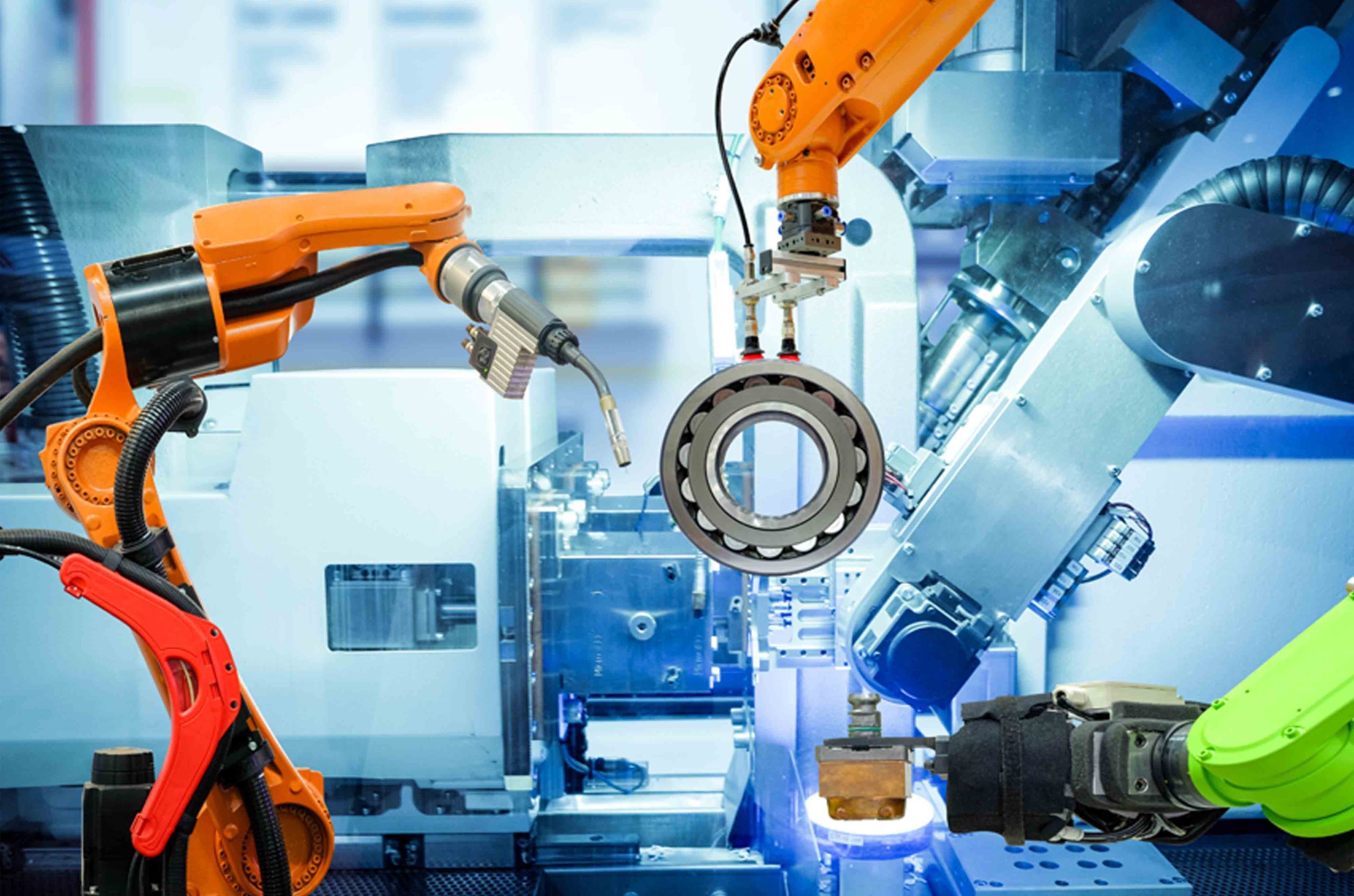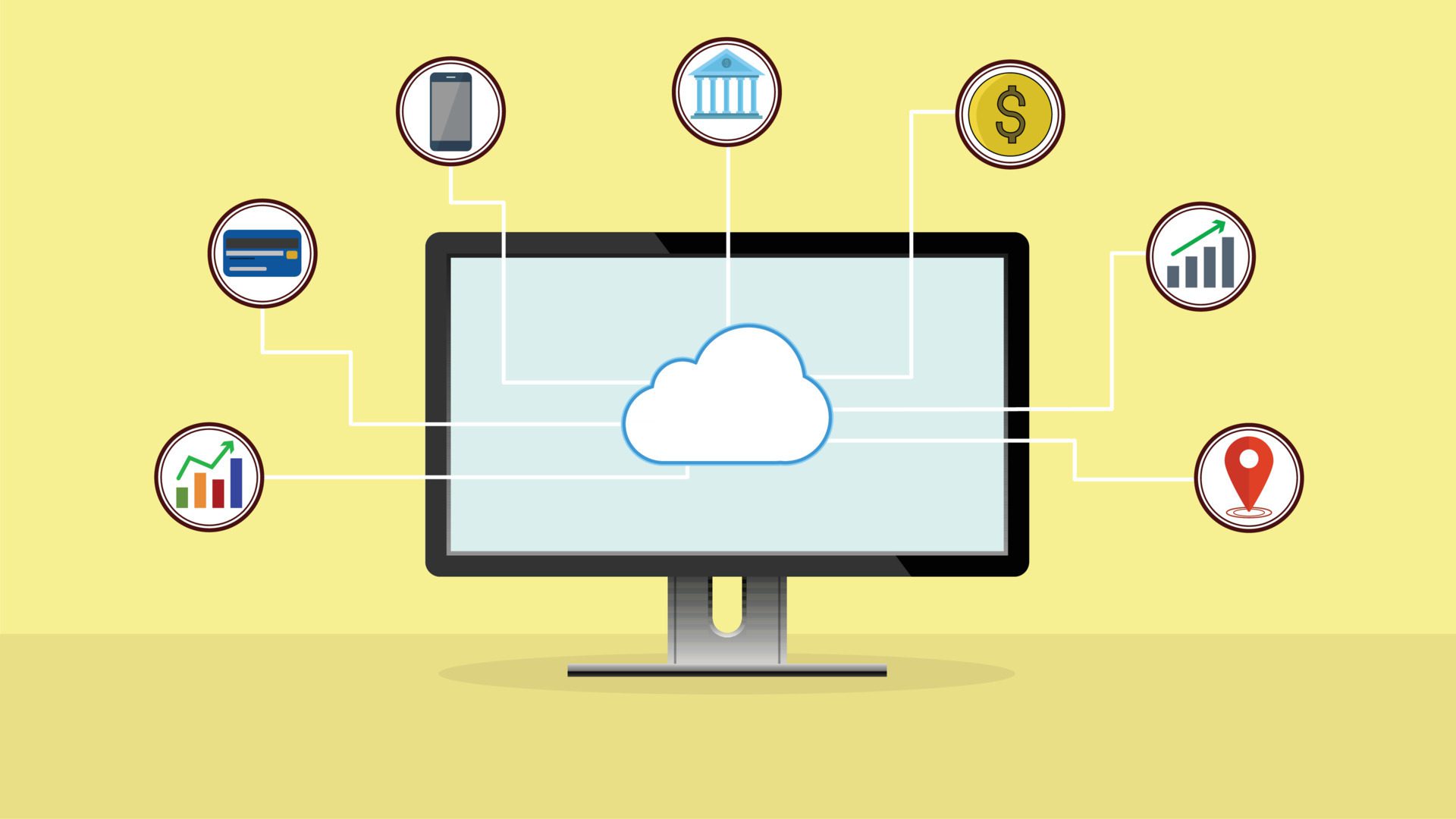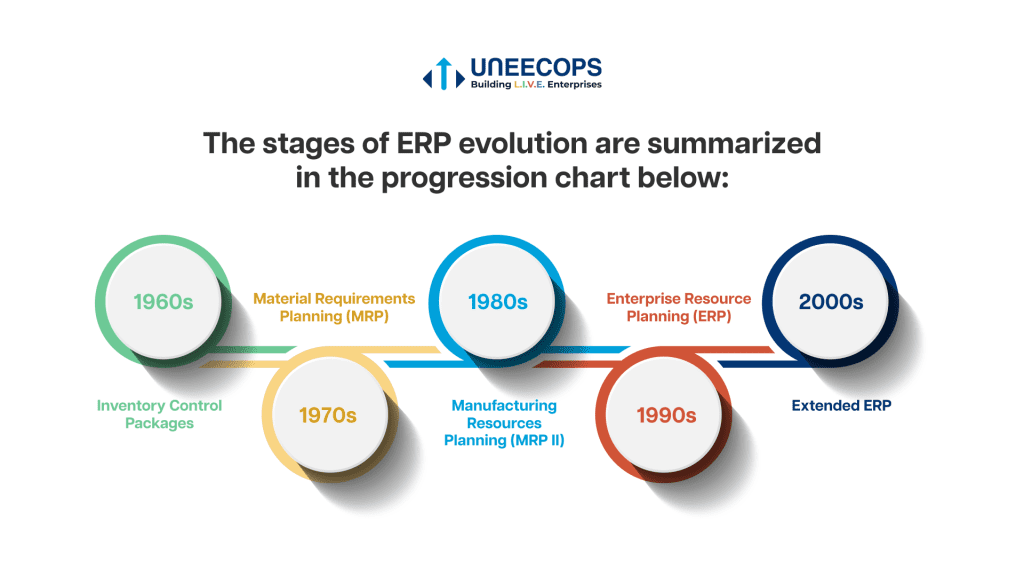Revolutionizing Manufacturing with ERP Cloud Solutions
Revolutionizing Manufacturing with ERP Cloud Solutions
Welcome to the era of revolutionized manufacturing with ERP cloud solutions! In today’s fast-paced and ever-changing technological landscape, businesses are constantly seeking ways to streamline their processes and improve efficiency. Enterprise Resource Planning (ERP) systems have long been a staple in manufacturing industries, but with the emergence of cloud-based solutions, companies now have even more tools at their disposal to optimize operations, reduce costs, and meet customer demands. Let’s explore how ERP cloud solutions are transforming the manufacturing sector and driving innovation.
Benefits of Manufacturing ERP Cloud Solutions
Manufacturing ERP Cloud Solutions offer a wide range of benefits to businesses in the manufacturing industry. In today’s fast-paced and highly competitive market, companies need efficient and effective tools to streamline their operations and stay ahead of the curve. By utilizing an ERP system that is based in the cloud, manufacturers can enjoy a number of advantages that can help them improve productivity, reduce costs, and enhance overall performance.
One of the key benefits of Manufacturing ERP Cloud Solutions is the flexibility and scalability they provide. Unlike traditional on-premise solutions, cloud-based ERP systems can easily adapt to the changing needs of a manufacturing business. This means that companies can easily scale their operations up or down as required, without having to invest in costly hardware or infrastructure upgrades. This level of flexibility is crucial for manufacturers who need to respond quickly to market demands and changing business conditions.
Another important benefit of Manufacturing ERP Cloud Solutions is improved accessibility and collaboration. With a cloud-based system, employees can access important data and tools from anywhere, at any time. This enables better communication and collaboration among team members, regardless of their location. Whether employees are working from the office, the factory floor, or remotely, they can all have access to the same real-time information, leading to more informed decision-making and increased efficiency.
Additionally, Manufacturing ERP Cloud Solutions offer enhanced data security and disaster recovery capabilities. Cloud-based systems are equipped with advanced security measures to protect sensitive company data from cyber threats and unauthorized access. Furthermore, cloud providers offer robust backup and recovery options to ensure that data is always safe and accessible, even in the event of a system failure or natural disaster. This level of security and reliability gives manufacturers peace of mind, knowing that their critical business information is protected at all times.
Cost savings are also a significant benefit of Manufacturing ERP Cloud Solutions. By utilizing a cloud-based system, manufacturers can reduce the need for on-premise hardware, maintenance, and IT support, which can result in significant cost savings. Additionally, cloud-based ERP systems often operate on a subscription-based model, allowing companies to pay only for the services they need and use. This can help manufacturers better manage their IT budget and allocate resources more efficiently.
In conclusion, Manufacturing ERP Cloud Solutions offer a wide range of benefits that can help manufacturers improve efficiency, collaboration, security, and cost-effectiveness. By leveraging the flexibility, accessibility, and scalability of cloud-based ERP systems, manufacturing businesses can stay competitive in today’s rapidly evolving market and drive sustainable growth and success.
Key Features of a Manufacturing ERP System in the Cloud
Manufacturing ERP systems in the cloud offer a wide range of features that cater specifically to the needs of the manufacturing industry. These features are designed to streamline operations, improve efficiency, and provide real-time insights into the manufacturing process. Let’s delve deeper into some of the key features that make manufacturing ERP systems in the cloud so powerful.
1. Inventory Management: One of the essential features of a manufacturing ERP system in the cloud is robust inventory management capabilities. These systems allow manufacturers to track their inventory levels in real-time, optimize stock levels, and prevent stockouts or overstock situations. By having a comprehensive view of their inventory, manufacturers can ensure that they always have the right amount of raw materials or finished goods on hand to meet customer demand.
2. Production Planning and Scheduling: A manufacturing ERP system in the cloud provides sophisticated production planning and scheduling tools that help manufacturers optimize their production processes. These tools allow manufacturers to create detailed production schedules, allocate resources efficiently, and track the progress of each production order in real-time. By having a clear overview of their production schedules, manufacturers can identify bottlenecks, make adjustments as needed, and ensure that production runs smoothly.
3. Quality Control: Quality control is crucial in the manufacturing industry to ensure that products meet the required standards and specifications. Manufacturing ERP systems in the cloud offer robust quality control features that allow manufacturers to track and monitor the quality of their products throughout the production process. These systems can help in identifying defects, tracking quality issues, and implementing corrective actions to improve product quality and customer satisfaction.
4. Supply Chain Management: A manufacturing ERP system in the cloud also includes supply chain management features that enable manufacturers to manage their suppliers, track shipments, and monitor the flow of materials in real-time. These features help manufacturers streamline their supply chain operations, reduce lead times, and increase overall efficiency. By having full visibility into their supply chain, manufacturers can make informed decisions, reduce costs, and improve collaboration with their suppliers.
5. Reporting and Analytics: Manufacturing ERP systems in the cloud come equipped with powerful reporting and analytics tools that provide manufacturers with valuable insights into their operations. These tools allow manufacturers to generate customizable reports, track key performance indicators, and analyze data to identify trends and opportunities for improvement. By leveraging advanced reporting and analytics capabilities, manufacturers can make data-driven decisions, optimize their processes, and drive business growth.
In conclusion, manufacturing ERP systems in the cloud offer a comprehensive set of features that empower manufacturers to streamline their operations, improve efficiency, and make informed decisions. By leveraging the key features mentioned above, manufacturers can enhance their production processes, optimize their supply chain, and drive business success in today’s competitive manufacturing landscape.
Integration and Scalability of Cloud-based ERP for Manufacturing
Cloud-based ERP systems offer manufacturers the ability to seamlessly integrate various aspects of their operations, from inventory management to supply chain logistics. By connecting all these different processes into one centralized platform, manufacturers can gain a comprehensive view of their operations in real-time, allowing for better decision-making and increased efficiency.
One of the key advantages of cloud-based ERP for manufacturing is its scalability. Traditional ERP systems often required significant investments in hardware and software, making it difficult for smaller manufacturers to afford. With cloud-based ERP, manufacturers can easily scale their operations up or down based on their current needs, without having to worry about costly upgrades or installations.
Furthermore, cloud-based ERP systems are designed to be easily customizable, allowing manufacturers to tailor the system to meet their specific needs. Whether they need to add new features or integrate with third-party software, cloud-based ERP systems offer the flexibility to adapt to changing business requirements.
Scalability in a cloud-based ERP system also extends to the ability to add new users or locations as the business grows. Manufacturers can easily grant access to employees or partners, regardless of their location, ensuring that everyone has access to the same real-time data and information.
Additionally, cloud-based ERP systems offer seamless integration with other business tools and applications, such as CRM systems or e-commerce platforms. This integration eliminates the need for manual data entry and reduces the risk of errors, streamlining processes and improving overall efficiency.
In conclusion, the integration and scalability of cloud-based ERP for manufacturing offer numerous benefits to manufacturers of all sizes. With the ability to connect various aspects of their operations into one centralized platform, manufacturers can gain a comprehensive view of their business in real-time, enabling better decision-making and increased efficiency. Furthermore, the scalability of cloud-based ERP systems allows manufacturers to easily adjust their operations based on their current needs, without the need for costly upgrades or installations. Overall, cloud-based ERP systems offer manufacturers the flexibility and adaptability they need to succeed in today’s fast-paced manufacturing industry.
Considerations for Choosing a Manufacturing ERP Cloud Provider
Choosing a manufacturing ERP cloud provider is a critical decision for any company looking to streamline their operations and improve efficiency. There are several factors to consider when selecting the right provider for your business. Here are some key considerations:
1. Industry Experience: When choosing a manufacturing ERP cloud provider, it is important to look for a company that has experience working with businesses in your industry. They should understand the specific needs and challenges of your sector, and be able to tailor their solutions to meet your unique requirements.
2. Scalability: As your business grows, your ERP system needs to be able to grow with you. Look for a cloud provider that offers scalable solutions that can easily accommodate your company’s growth without requiring a complete system overhaul.
3. Integration Capabilities: An ERP system is only as effective as the data it can access. Look for a cloud provider that offers seamless integration capabilities with other software applications, such as CRM systems, accounting software, and production planning tools. This will ensure that all of your systems work together seamlessly, improving overall efficiency.
4. Data Security: One of the most important considerations when choosing a manufacturing ERP cloud provider is data security. Your ERP system will contain sensitive and confidential information about your business operations, so it is crucial that this data is kept secure at all times. Look for a provider that offers robust security measures, such as encryption, regular data backups, and access controls to ensure that your data is protected from cyber threats.
By considering these key factors when choosing a manufacturing ERP cloud provider, you can select a partner that will help your business thrive and reach its full potential. Take the time to research your options, ask for references, and evaluate each provider’s offerings to find the best fit for your company’s needs.
Case Studies of Successful Implementations of Manufacturing ERP in the Cloud
Implementing a Manufacturing ERP system in the cloud can provide numerous benefits for companies in the manufacturing industry. Here are some case studies of successful implementations of Manufacturing ERP in the Cloud:
1. ABC Manufacturing Company: ABC Manufacturing Company, a leading manufacturer of automotive parts, implemented a cloud-based ERP system to streamline their production process. By integrating all aspects of their business operations into one centralized platform, they were able to improve efficiency, reduce costs, and increase overall productivity. The real-time data access provided by the cloud ERP system allowed them to make quick decisions and adapt to changing market demands.
2. XYZ Electronics: XYZ Electronics, a global electronics manufacturer, implemented a cloud ERP solution to manage their complex supply chain and production processes. By leveraging the scalability and flexibility of the cloud, they were able to connect their global manufacturing facilities, suppliers, and distributors seamlessly. This resulted in improved inventory management, reduced lead times, and increased customer satisfaction.
3. DEF Furniture Company: DEF Furniture Company switched to a cloud-based ERP system to modernize their manufacturing operations. By implementing an integrated solution, they were able to automate their production scheduling, inventory tracking, and order management processes. This resulted in shorter lead times, reduced waste, and improved on-time delivery performance.
4. GHI Pharmaceutical Company: GHI Pharmaceutical Company adopted a cloud ERP system to comply with industry regulations and improve traceability in their manufacturing processes. The cloud-based solution enabled them to track raw materials, production batches, and shipments in real-time, ensuring compliance with strict quality standards. This increased transparency and accountability throughout their supply chain.
5. JKL Aerospace Corporation: JKL Aerospace Corporation, a leading aerospace manufacturer, implemented a cloud ERP system to streamline their complex production processes and improve collaboration between departments. By consolidating data from engineering, production, and procurement departments in a single platform, they were able to eliminate silos and improve communication. This resulted in faster decision-making, reduced errors, and increased operational efficiency.
In conclusion, these case studies demonstrate the significant impact that implementing Manufacturing ERP in the cloud can have on improving efficiency, reducing costs, and driving growth in the manufacturing industry. By leveraging the power of cloud technology, companies can gain a competitive edge and stay ahead of the curve in today’s fast-paced market.







